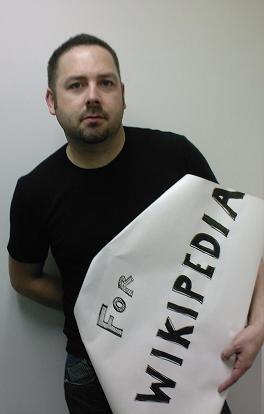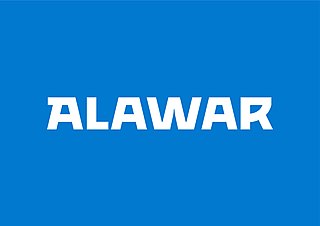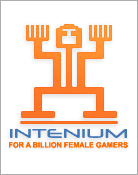A massively multiplayer online role-playing game (MMORPG) is a video game that combines aspects of a role-playing video game and a massively multiplayer online game.
A massively multiplayer online game is an online video game with a large number of players to interact in the same online game world. MMOs usually feature a huge, persistent open world, although there are games that differ. These games can be found for most network-capable platforms, including the personal computer, video game console, or smartphones and other mobile devices.
Jagex Limited is a British video game developer and publisher based at the Cambridge Science Park in Cambridge, England. It is best known for RuneScape and Old School RuneScape, both free-to-play massively multiplayer online role-playing games. The company's name is derived from the company's original slogan, "Java Gaming Experts".
Free-to-play video games are games that give players access to a significant portion of their content without paying or do not require paying to continue playing. Free-to-play is distinct from traditional commercial software, which requires a payment before using the game or service. It is also separate from freeware games, which are entirely costless. Free-to-play's model is sometimes derisively referred to as free-to-start due to not being entirely free. Free-to-play games have also been widely criticized as "pay-to-win"—that is, that players can generally pay to obtain competitive or power advantages over other players.

George Edward Lowe is an American voice actor and comedian whose voice roles include Space Ghost on the animated series Space Ghost Coast to Coast and its spin-off, Cartoon Planet. He has continued to voice Space Ghost in several cameos in other programs for several years following the conclusion of the series.

Jolt Online Gaming was an online gaming company hosted in Ireland. Its main site provided news, reviews, and interviews concerning upcoming games on consoles and computers, while its gaming network Jolt Online Gaming Network hosted and published free-to-play browser-based games. Notable works included Utopia, Utopia Kingdoms, Legends of Zork, and NationStates 2.

Paul Barnett is an English game designer who is a Global Product Director at Wargaming, working on their game World of Tanks. Before that he worked at Electronic Arts' Office of the Chief Creative Officer and was the General Manager of Mythic Entertainment, a subsidiary of EA. Barnett had a lead role in developing EA's Warhammer Online MMO in Europe.

Station.com was Sony Online Entertainment's portal that was the home to its many PC, console, casual and mobile games. It is the home to many MMOs including EverQuest, EverQuest II, The Matrix Online, PlanetSide, and Star Wars Galaxies, which have gained hundreds of thousands of paid subscribers.
Free Realms was a massively multiplayer online role-playing game (MMORPG) developed by Sony Online Entertainment (SOE) set in a fantasy-themed world called Sacred Grove. The game was first released on April 28, 2009 for Microsoft Windows. Versions for Mac OS X and PlayStation 3 followed in subsequent years. The game was free-to-play with leveling restrictions, with access to additional content available through a membership fee. The game allowed the player to fight, interact with other players, take up jobs, and more.
Virtual goods are non-physical objects and money purchased for use in online communities or online games. Digital goods, on the other hand, may be a broader category including digital books, music, and movies. Virtual goods are intangible by definition.
Domain of Heroes was a free-to-play, text-based MMORPG by American studio Tandem Games. It was a browser based game, designed so that it can be played whilst running other games, or working. It is free to play, supported by an optional micropayment business model.

Alawar Entertainment is an international developer and publisher of video games. Founded in Novosibirsk, Russia, it is based in Lewes, Delaware, United States. Its main areas of activity are free-to-play games. The company's games have sold more than 200 million copies.

Travian Games GmbH, based in Munich, is a medium-sized German company in the software industry that has specialized in developing and marketing PC and browser games. Travian Games also acts as an international publisher for selected game titles. Since 2017, the largest company in the video game industry in Bavaria has been a member of the BIU – Bundesverband Interaktive Unterhaltungssoftware. Moreover, Lars Janssen, CEO of Travian Games, has been serving as a board member of Game – the Association of the German Games Industry since 2018.
Junebud AB (publ) was a Swedish video game company that was specialized in 3D mobile and browser games. The company's focus was console quality, highly accessible games available via web portals, social networks and mobile platforms. Initially self funded, Junebud raised its first round of private capital in the Spring of 2009.
Suzhou Snail Digital Technology Co., Ltd., doing business as Snail, is a Chinese video game company and a Virtual Network Operator headquartered in Suzhou, China, which has branches Snail Games and Snail Mobile. Its division, Snail USA, markets Snail Games products in North America, South America, & Europe. Snail Games products include massively multiplayer online (MMOs), real-time strategy (RTS), and casual games. Its global registered user base has reached over 70 million accounts,. The U.S. operation anticipated the launch of its portal for Western audiences in Q2 2011, PlaySnail.com.

Geewa is a Czech mobile game developer based in Prague. Founded in 2005, the company develops and publishes casual, competitive, multiplayer games for mobile devices. Geewa was awarded the Red Herring 100 Europe award in 2013 and is best known for their games Smashing Four and Pool Live Tour. In 2017, Geewa lost CZK 18 mil on sales of CZK 26 mil ($1,174,999.28). The accumulated loss increased to CZK 174 mil ($7,863,456.72).
InnoGames GmbH is a German video game developer and publisher based in Hamburg. Founded in 2007, it focuses on the development of free-to-play online browser and mobile games. The company reached a turnover of €220 million in 2020 and currently has ten live games.
Video game monetization is a type of process that a video game publisher can use to generate revenue from a video game product. The methods of monetization may vary between games, especially when they come from different genres or platforms, but they all serve the same purpose to return money to the game developers, copyright owners, and other stakeholders. As the monetization methods continue to diversify, they also affect the game design in a way that sometimes leads to criticism.
Buy-to-play (B2P) is a revenue model for video games where a game can be played after a one-time purchase, as opposed to a subscription model where the player must pay a subscription at regular intervals to continue having access to the game. Buy-to-play, while a form of premium games, generally apply to games where there is continued ongoing content or support from the developer or publisher well beyond the period of purchase, such as through maintenance of online servers or through the production of ongoing content and expansions, as often the case in massively multiplayer online games (MMO). This support can be monetized through additional microtransactions or through an ongoing subscription fee. Microtransactions are becoming evermore entwined with the buy-to-play revenue model as most recent games allow for some sort of additional purchase. For example, buy-to-play title Guild Wars 2 allows players to purchase additional in-game items with microtransactions, while Destiny 2 lets users purchase season passes for additional content.
In the video game industry, games as a service (GaaS) represents providing video games or game content on a continuing revenue model, similar to software as a service. Games as a service are ways to monetize video games either after their initial sale, or to support a free-to-play model. Games released under the GaaS model typically receive a long or indefinite stream of monetized new content over time to encourage players to continue paying to support the game. This often leads to games that work under a GaaS model to be called "living games" or "live games" since they continually change with these updates.







